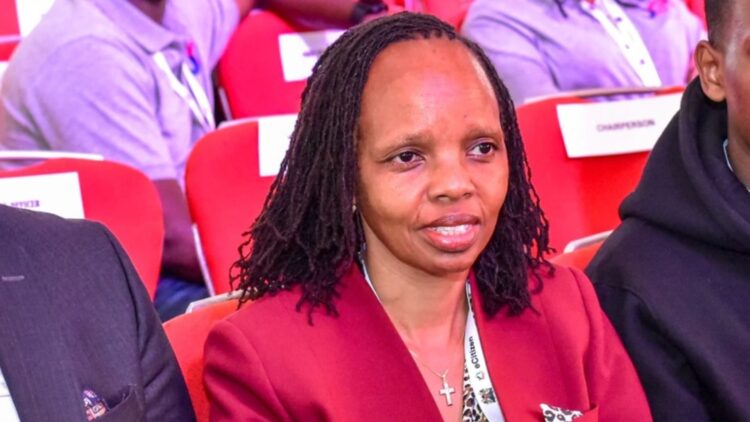KUCCPS Courses Requiring Mathematics as a Compulsory Subject.
Mathematics is fundamental in various fields, particularly in Science, Technology, Engineering, and Mathematics (STEM), as well as in business and finance programs. It serves as the foundation for numerous careers, extending beyond STEM to business, law, finance, creative arts, and social sciences.
Beyond academic and professional applications, mathematics equips individuals with essential life skills, including logical reasoning, problem-solving abilities, and data literacy. These skills are crucial for navigating today’s rapidly evolving world.
With technological advancements, research and business operations have become increasingly complex and data-driven. A solid background in mathematics enables individuals to maximize the potential of these technological developments.
KUCCPS Courses Requiring Mathematics as a Compulsory Subject
Mathematics and Computing
A Bachelor of Science (BSc) in Mathematics and Computing provides students with a strong foundation in both mathematical theory and computing techniques. This interdisciplinary program addresses the growing demand for professionals who apply mathematical reasoning and computational skills to solve real-world challenges.
Graduates pursue careers as Data Scientists, Software Developers, Actuarial Analysts, Financial Analysts, Operations Research Analysts, Quantitative Analysts, AI and Machine Learning Specialists, and Research Scientists. Admission requires a KCSE mean grade of C+ or its equivalent, with a B in Mathematics.
Statistics
The BSc in Statistics program is structured to develop graduates proficient in fundamental statistical concepts, mathematics, and computing. Statistics is closely integrated with disciplines such as Data Science and Information Technology (IT), equipping students with analytical skills applicable in various industries.
Actuarial Science
Actuarial Science involves the application of mathematical and statistical methods to assess risk in insurance, finance, and other sectors. Actuaries evaluate financial risks using mathematics, statistics, and financial theories to analyze uncertain future events, making this discipline essential in financial decision-making.
Pure and Applied Mathematics
This program enables students to gain confidence and expertise in pure and applied mathematics, applying mathematical modeling and techniques to real-world problems.
Pure Mathematics focuses on theoretical aspects such as algebra, analysis, geometry, and number theory, emphasizing concept development rather than practical applications. Applied Mathematics, on the other hand, involves using mathematical methods to solve problems in engineering, physics, economics, and data science.
Computer Science and IT
The Computer Science program provides students with expertise in various domains, including software engineering, computer networks, internet technology, management information systems, computer graphics, and multimedia systems.
The Information Technology (IT) program equips students with skills to manage business-related computer systems effectively. It offers career-based training in business information technology system development, incorporating programming techniques and software-hardware configurations.
Admission requires a KCSE mean grade of C+, with a minimum C+ in at least four cluster subjects: Mathematics, Physics, Chemistry or Biology, or any subject from Groups III, IV, or V.
Engineering Courses
A Bachelor of Science (BSc) in Engineering is available in various specializations, including Civil, Electrical, Mechanical, Chemical, Geospatial, Industrial, Environmental and Bio-Systems, and Petroleum Engineering.
Admission requirements include a KCSE mean grade of C+ with C+ passes in Mathematics, Physics, Chemistry, and Biology or any subject from Groups III, IV, and V.
Arts and Design
Programs in this category include the Bachelor of Arts in Design and the Bachelor of Arts in Interior Design. Students must have a KCSE mean grade of C+, with a minimum C+ in Mathematics, English or Kiswahili, Biology, Physics, or Chemistry, along with any subject from Groups III, IV, or V.
Architectural Studies
This category comprises degree programs such as Real Estate, Arts in Planning, Quantity Surveying, Construction Management, and a Diploma in Estate Agency and Property Management. These programs prepare students for careers in architecture, property management, and urban planning.
Physical Sciences
Physical sciences encompass degree programs such as BSc in Analytical Chemistry, Industrial Chemistry, Meteorology, Microprocessor Technology and Instrumentation, and Geology. Additional programs include Environmental Geosciences, Astronomy/Astrophysics, Petroleum Geosciences, and Chemistry, providing a broad spectrum of scientific expertise.
Business Courses
Business programs include the Bachelor of Commerce (BCom), which offers specializations in Finance, Accounting, Marketing, Insurance, Human Resource Management, Procurement and Supply Chain Management, Business Information Systems, and Operations Management.
Other available programs include BSc in Accounting, BSc in Finance, and BSc in Operations and Supply Chain Management. Admission requires a KCSE mean grade of C+, with a minimum of C in Mathematics and either English or Kiswahili.
By meeting the mathematics requirements for these KUCCPS courses, students open doors to diverse career opportunities in multiple fields, reinforcing the significance of mathematical proficiency in academic and professional success.
Curriculum Reform in Kenya: Mathematics No Longer Core at Senior Level
Transition from 8-4-4 to CBC
Kenya is phasing out the 8-4-4 education system, which previously categorized mathematics as a compulsory subject along with English, Kiswahili, and at least two sciences. The new Competency-Based Curriculum (CBC) introduces a significant shift in structure and subject selection at the senior secondary school level.
Pathway-Based Specialization
With the CBC, students are guided to specialize early by selecting subjects aligned with their interests and abilities. The framework promotes individualized academic growth through a focus on career pathways from the onset of senior secondary education.
Core and Optional Subjects
Under the revised curriculum, students are still mandated to study English, Kiswahili, and Kenya Sign Language. Mathematics, however, has transitioned from a compulsory subject to an elective, now included among 38 optional subjects available for students to choose from based on their desired academic and professional trajectory.
Read Also: KUCCPS: How to Maximize Chances of Securing a Preferred Course
STEM Requirements and Curriculum Debate
For learners who opt for the Science, Technology, Engineering, and Mathematics (STEM) pathway, mathematics remains compulsory. Education authorities have indicated that while mathematics is currently optional for other pathways, the role it should play in the broader curriculum is still under active discussion.
KUCCPS Courses Requiring Mathematics as a Compulsory Subject.



Discussion about this post